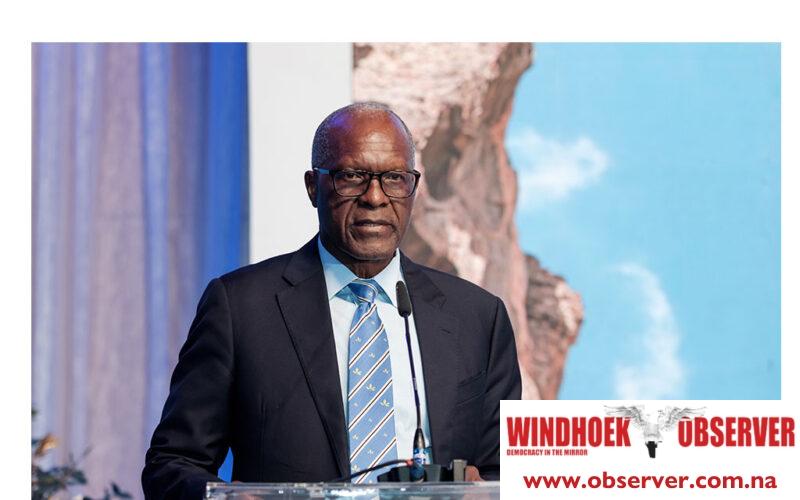Justicia Shipena
Former mines and energy minister Tom Alweendo says RWE’s withdrawal from a non-binding offtake memorandum of understanding (MoU) should serve as a wake-up call for Namibia to re-evaluate its green hydrogen strategy.
He said the exit by the German energy company highlights the need for Namibia to rebuild its hydrogen programme on firmer ground, focusing on domestic use before pursuing large-scale exports.
“The global market is soft, timelines are slipping, and only a few projects worldwide are reaching final investment decisions. That tells us this is not the time for bravado, it’s time for phasing and bankability,” Alweendo said.
He said Namibia should anchor early hydrogen demand in industries such as mining, ports, and peaking power generation, where replacing imported fuels could bring immediate economic returns.
Alweendo called for public investment in shared infrastructure such as desalination, port and grid facilities through a multi-user special purpose vehicle, while private developers compete on electrolysers and ammonia plants.
He said building investor and public trust requires strong governance and environmental safeguards. “We must ensure free, prior and informed consent for communities, biodiversity protection, and fair benefit-sharing to lower risk and build confidence,” he said.
Alweendo added that Namibia must enforce price discipline through floor-price offtake deals, step-out clauses in case of policy changes, and realistic local content targets.
He said RWE’s exit is not the end of Namibia’s hydrogen ambitions but an opportunity to strengthen them.
“Let’s pause the mega-export story. Build reliability and cash flow at home, then take Namibia’s clean molecules to the world,” he said.
Last month, Hyphen Hydrogen Energy said no purchase agreement was ever signed with RWE Supply and Trading (RWEST) for the planned green hydrogen project at Lüderitz.
This followed a statement by the Nama Traditional Leaders Association (NTLA), which stated that RWE was no longer involved in the project.
The NTLA said it confirmed the decision after making an inquiry with international partners, including the Society for Threatened Peoples, the European Centre for Constitutional and Human Rights, Forensic Architecture, and Minority Rights Group International.
The NTLA and its partners argue that the project violates indigenous rights on ancestral Nama land within the Tsau||Khaeb National Park.
Hyphen’s communications and stakeholder relations lead, Ricardo Goagoseb, told the Windhoek Observer that reports of RWE’s withdrawal were misleading. He said there was no purchase agreement in place, only a memorandum of understanding to explore potential offtake.
Hyphen, a Namibian-registered company, aims to produce one million tonnes of green ammonia annually by 2027 and double production to two million tonnes by 2029.
The project, a British-German joint venture with German company Enertrag SE, covers 4 000 km² inside Tsau||Khaeb National Park.
The Namibian government appointed Hyphen as the preferred bidder to develop the country’s first green hydrogen export project.
In February 2023, it signed non-binding MoUs with two major industrial companies for the supply of up to 750 000 tonnes of green ammonia annually, including 500 000 tonnes with a major chemical company and 250 000 tonnes with Approtium, a South Korean hydrogen producer.
The MoUs included that with RWE Supply and Trading for up to 300 000 tonnes annually from 2027.
Fertilisers and other industrial processes use ammonia, one of the most common basic materials in the chemical industry. Global production exceeds 180 million tonnes each year.
Caption
Tom Alweendo
- Photo: Contributed




